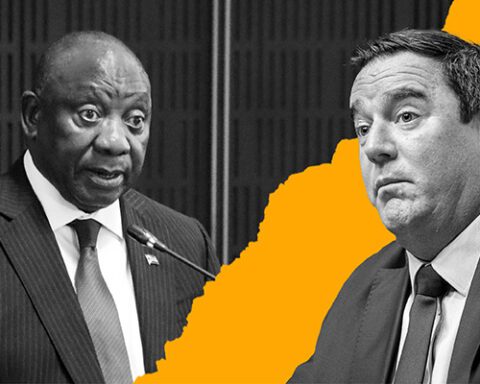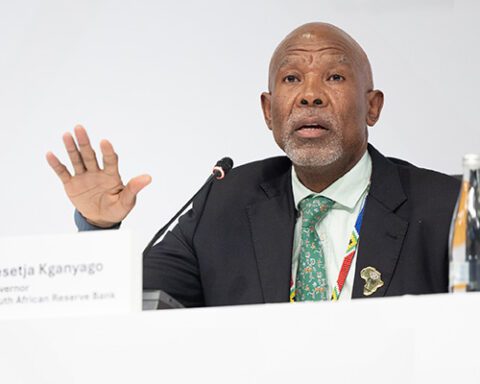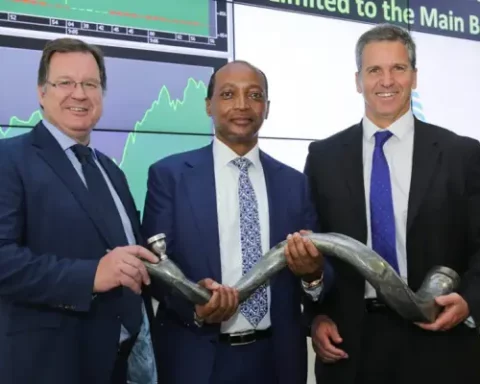You have to wonder where the mandarins running the department of trade, industry and competition (DTIC) have been hanging out for the past 31 years. Or at least where the authors of treatises such as the recently released “Draft Transformation Fund Concept Document” have been holed up.
The so-called “concept document” purports to provide details about the functioning of the R100bn fund first announced by DTIC minister Parks Tau at the end of 2024. It does nothing of the sort.
According to the vague proposal Tau presented to his parliamentary colleagues towards the end of the parliamentary session last year, the R100bn fund would be financed through a mix of public and private sector funding and would be launched later this year.
The money, expected to be collected by 2029, would be placed in a special purpose vehicle to be set up and run by the National Empowerment Fund (NEF).
As you can imagine, there was a lot of scope for putting flesh on the bare bones of Tau’s announcement. The just-released concept document should have done just that.
It repeats obvious statements about the need to support majority Black-owned businesses, the need for job creation and economic growth. It talks of the slow pace of transformation of the South African economy and states categorically: “The majority of Black people are still excluded from the economic mainstream. As a result, [the] government has a responsibility to assist Black enterprises to increase their economic participation and income-earning potential. The increased participation of Black people will in turn lead to increased contribution towards economic growth and a substantively equal society.”
There’s no doubt if this document had been released in 1994 it would have been greeted with much enthusiasm and nodding of heads. But it’s not 1994, and so this document looks as though it’s been cobbled together by a few development finance undergraduate students who’d somehow managed to avoid reality for the past few decades.
‘Market failure’
The document is intended to trigger discussion about Tau’s proposal and interested parties are invited to send their comments to the DTIC. But it is so shallow it’s unlikely to trigger any useful discussion of the critically important issue of how effectively to support Black-owned businesses.
The concept document makes no mention of the plethora of initiatives the government has launched over the past 30 years and why most have met with little to no success. An analysis of existing initiatives might have shed light on why throwing money at this problem doesn’t seem to have achieved much other than creating lucrative employment opportunities for the throwers of that money.
Ahead of the holiday weekend, Business Unity South Africa, which was opposed to the initial plan, told Currency that it was still studying the document. “As such, we are not in a position to comment on its content.”
Toby Chance, the DA’s spokesperson on trade, industry and competition, describes the proposed fund as a pipe dream.
In a recent address to the National Assembly, he pointed out: “Its stated aim is to address market failure by providing more funding and support for Black-owned businesses. But it is wishful thinking to imagine another fund will miraculously transform the economy for the better.”
Chance lists the funding and support mechanisms that are already being provided through the department of small business development, the Industrial Development Corporation, the NEF, the Small Development Finance Agency, the Land Bank, the SA SME Fund, provincial development funding institutions and various funding instruments run by government departments.
“Conservatively, these provide R20bn of public funding annually to mainly Black-owned businesses.”
The R20bn is a significant figure. It’s the amount Tau has targeted for annual disbursements by the Transformation Fund.
Who will pay for it?
Frustratingly, the concept document hasn’t provided much detail on precisely where this new money will come from. There is vague talk of “government contributions” with funding from state departments, and organs of state and public entities. In addition, the fund plans to draw on the equity equivalent investment programme that targets multinational companies.
“There are multinational businesses that have challenges complying with the ownership element of the [broad-based] BEE codes and the codes make provision for those entities to set aside funds (25% of the value of their South African operations) which will be used for transformation purposes,” explains the concept document.
The authors reckon that funnelling this money to an untested government initiative makes sense because the Transformation Fund will have a greater transformational impact and a broader reach than the multinational companies could achieve themselves.
The most concerning proposed funding stream is the enterprise and supplier development (ESD) fund. At present, if companies want to boost their BEE ranking, they can pick up points by donating 3% of their net profit after tax to help create and support Black businesses. Inevitably these supported businesses are involved in the donor company’s supply chain.
Ask any BEE analyst and they will tell you these ESD initiatives have been extremely effective in helping to establish and grow businesses. Those businesses could now be at risk if the donor companies are offered the option of merely handing the money over to the Transformation Fund and getting the points.
Indeed, the concept document doesn’t make clear whether the donor company will even have that option. “Government will review the ESD codes to ensure that funds for ESD are paid by entities towards the Transformation Fund,” says the document.
Chance tells Currency that one source of funding that has been dropped is the public interest clause in the Competition Act. The clause gives the Competition Commission the power to set conditions for approving transactions including the payment of hefty sums of money to the commission.
It was indicative of the naivety of the proponents of the Transformation Fund that they were not aware this money was not actually paid to the commission or DTIC but to the National Treasury, which has very strict rules about channelling money between various government departments and agencies.
But perhaps the most significant thing to disappear from Tau’s initial proposal is the NEF itself. There is no mention of the NEF in the concept document. This is remarkable given the crucial role it was initially intended to play, including setting up the special purpose vehicle to house the R100bn fund.
Given the NEF’s blighted track record as a dispenser of funds to empowerment transactions, this is an encouraging development. But as Chance points out, the document provides no details on how money will be dispensed.
All in all, as Chance says, the mangled proposal is a missed opportunity to have a root-and-branch rethink of how to address fundamental challenges. As he recently told the National Assembly: “The DTIC and NEF, which came up with the idea of the fund, should press the pause button and instead institute a review of legislation and regulations holding back growth and job creation.”
Encouragingly, a few days later, during a portfolio committee meeting, Tau committed to a full-blown review of broad-based BEE to establish what has worked and what hasn’t.
Perhaps after that review has been published it would be time for a revised concept document.
Top image: Trade, industry and competition minister Parks Tau. Picture: Gallo Images/Sharon Seretlo.
Sign up to Currency’s weekly newsletters to receive your own bulletin of weekday news and weekend treats. Register here.










